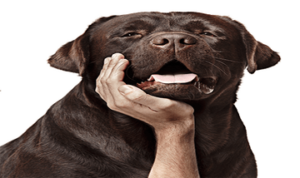The first thing that came to a dog owner’s mind after adopting a puppy is how to house train it. House training a puppy is not an easy process and requires a lot of patience, consistency, and commitment.
Accidents are common in the case of house training a puppy. However, if you follow the basic house training rules, your pup can be on the right track in no time.
In this article, we will discuss when to start potty training a puppy, and what are the things to keep in mind.
When should you start potty training a puppy?
The best age to start training a puppy is between 12 and 16 weeks. Below that age, your puppies do not have enough control over their bladder.
If you start training your puppy at this age, he will have enough control over his bowel movements and bladder, and he will learn fast.
If your puppy is over 16 weeks old when you adopt him and has been eliminating in the crate than potty training will take longer.
Steps for house training your puppy:
Establish a routine
Puppies are like human babies, they behave best on a regular schedule. By following the schedule, they can learn that there is a time to play, a time to eat, and a time to relieve themselves.
A general rule of thumb is that puppies can hold the bladder for about 60 minutes for each month of their age. For example, a three-month-old puppy can hold urine for three hours.
Don’t push them
When you bring your puppy home, remember that your home is a new environment for him and that it can be stressful for him to get along. Not only are the view of your house, the noises and the smell also new to your dog.
It is recommended not to force your puppy to do anything while adjusting to the new environment.
Watch out for the signs
Keep an eye on your dog because there are certain signs that your dog will show when he needs to eliminate. These signs may be circling and snooping. If your puppy is walking or whining, it also indicates that he needs to go to the bathroom. While house training your puppy, if you watch out for these signs, you will have fewer accidents.
It is important to take the puppy out on a routine schedule. The key moments are after eating, after waking up from a nap, and after a play. Since your puppy can hold his bladder for a long time, it is important to give him more opportunities to go out.
Command train them
It would be very easy to live with a puppy that is command trained. This will help you when you need your puppy to go out at a specific time. Just like when you travel by car, it would be great if you take your puppy out and say the specific command to relieve himself.
Potty train your puppy using the word “toilet.” It means that every time they hear the word “toilet,” it means they have to relieve themselves.
Accidents will happen
As you train your puppy, you need to remember that accidents are part of the training, and it is a reality. However, the point is, you shouldn’t get mad at these accidents because your dog doesn’t do it on purpose.
Accidents often happen at a young age because puppies don’t control their bladder for a long time. That is why puppies are trained so that they can hold their urine and know where to go.
Don’t yell at your dog or punish him if he goes to the wrong place. Try using an ammonia-free cleaning product and clean the place where your puppy has accidents.
Reward your puppy
Positive reinforcement can help you house train your puppy. If you give your dog a treat every time he goes to the right place, he will soon associate the fact that he is doing everything right.
The reward you give your puppy can be in the form of a treat, a long pat or a tummy rub, or talking to your puppy, or you can give him time to play. As long as you reward your dog for doing the right thing, you reinforce his good behavior.




